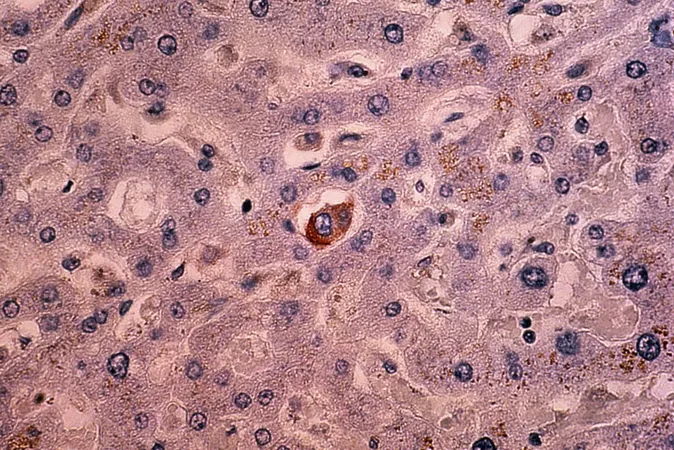
Alarming Study Reveals High Suicide Rates Among Autistic Individuals in the UK
2025-09-04
Author: Ming
A Troubling New Study:
A groundbreaking study from the University of Cambridge and Bournemouth University has uncovered critical insights into the mental health crisis facing autistic individuals in the UK. It reveals that loneliness, hopelessness, and feelings of worthlessness are paramount contributors to their suicidal thoughts.
Dismal Statistics Paint a Stark Picture
This research, published in 'Autism in Adulthood', stands as the largest survey of autism and suicide, engaging nearly 1,400 autistic participants, most from the UK. Alarmingly, the findings were prompted by Autism Action's urgent mission to alleviate the mental health struggles of autistic individuals, particularly as they grapple with staggeringly high suicide rates.
Dr. Rachel Moseley, the lead author and Principal Academic in Psychology at Bournemouth University, emphasized the severity of the issue: while only 1 in 37 non-autistic people attempt suicide at some point in their lives, a staggering 1 in 4 autistic individuals do. Shockingly, around 40% of those surveyed had attempted suicide, often multiple times.
The Roots of Despair
Participants attributed their suicidal ideation to multiple sources. Many recounted their traumatic school experiences where bullying and lack of support left deep scars, bleeding into adulthood where they also struggled to find stable employment.
Frustration with "inconsistent and unpredictable" healthcare and a harsh benefits system exacerbated these feelings, making many feel like a burden to their families. The stigmatization of autistic individuals led to further sadness and isolation, with one participant even declaring they felt "too defective to live."
Systemic Failures Highlighted
Professor Sir Simon Baron-Cohen, Director of the Autism Research Center at Cambridge, noted that many autistic people feel adrift in a society that seems indifferent or even hostile towards them. The study underscores a lack of equal access to fundamental resources critical for mental well-being.
Participants shared experiences of being disbelieved or misunderstood when seeking professional help, leading to feelings of hopelessness. The data revealed that those who encountered the most barriers to support were the ones most likely to attempt suicide, with a marked impact on autistic women and gender minorities who faced even greater struggles to have their needs met.
Long Waits for Help
Crucially, many individuals felt "broken" due to missed diagnoses in childhood, which affected their self-worth throughout life. Lengthy waiting lists for assessments and a lack of follow-up support added to their hopelessness.
A Call to Action
The researchers make a strong case for urgent governmental change. They stress that the current assessment waiting times are unacceptable, and the absence of support resources leads to devastating consequences, including increased suicide risk among both diagnosed and undiagnosed autistic individuals. Dr. Moseley insists, "Our study highlights that suicide among autistic people is a public health crisis interconnected with systemic failures in education, healthcare, and social services. Immediate action from decision-makers is essential to address these critical gaps."


 Brasil (PT)
Brasil (PT)
 Canada (EN)
Canada (EN)
 Chile (ES)
Chile (ES)
 Česko (CS)
Česko (CS)
 대한민국 (KO)
대한민국 (KO)
 España (ES)
España (ES)
 France (FR)
France (FR)
 Hong Kong (EN)
Hong Kong (EN)
 Italia (IT)
Italia (IT)
 日本 (JA)
日本 (JA)
 Magyarország (HU)
Magyarország (HU)
 Norge (NO)
Norge (NO)
 Polska (PL)
Polska (PL)
 Schweiz (DE)
Schweiz (DE)
 Singapore (EN)
Singapore (EN)
 Sverige (SV)
Sverige (SV)
 Suomi (FI)
Suomi (FI)
 Türkiye (TR)
Türkiye (TR)
 الإمارات العربية المتحدة (AR)
الإمارات العربية المتحدة (AR)